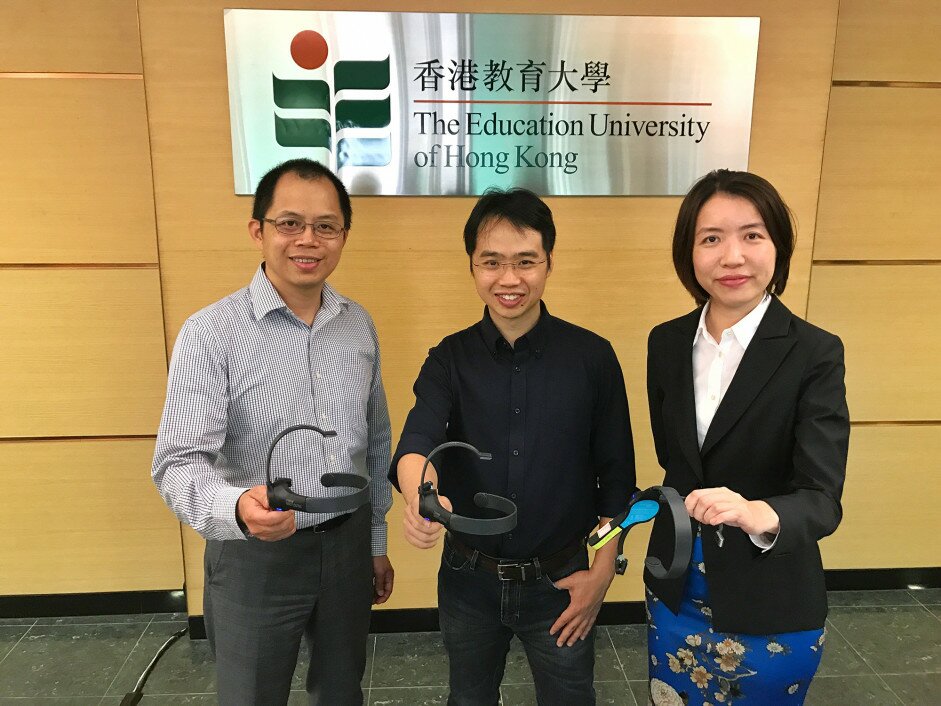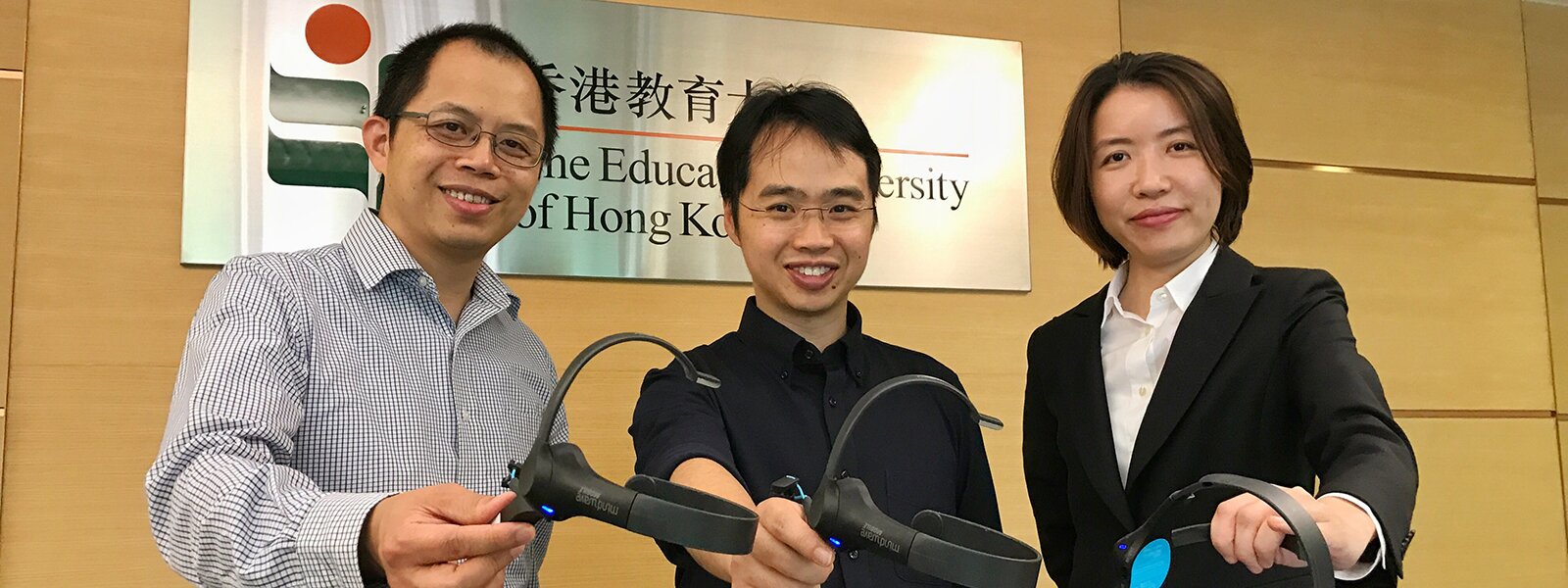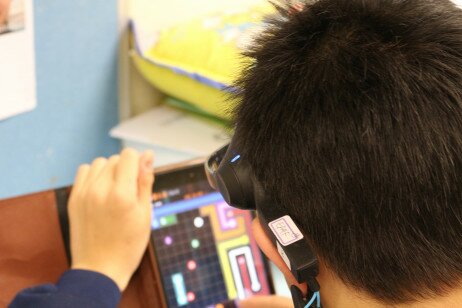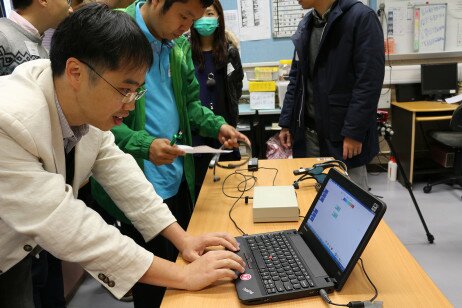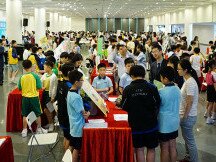EdUHK Introduces Pioneering Brainwave Analysis System for Use in Special Education
EdUHK Introduces Pioneering Brainwave Analysis System for Use in Special Education
The Education University of Hong Kong (EdUHK), in collaboration with the Department of Electronic Engineering at City University of Hong Kong (CtiyU), has successfully developed the Portable, Multi-User Brainwave Recording and Analysis System, which can simultaneously gather physiological data of multiple students with special educational needs. The system supports frontline teaching professionals in understanding the emotional changes and learning experiences of their students to enhance the effectiveness of teaching and learning in special education.
According to Education Bureau information presented to the HKSAR Legislative Council in April 2014, the number of students with special needs in education has been increasing. Autistic children, in particular, tend to show significant delays in language development and struggle to express personal feelings and emotions. Consequently, teachers must be aware of their emotional changes and adjust teaching activities accordingly. Teachers also need to continually assess the learning progress of autistic students and, in response, adjust educational plans.
To further support the education of students with special needs, the Centre for Brain and Education (CBE) of EdUHK and Dr Rosa H M Chan from the Department of Electronic Engineering at CityU developed the recording system thanks to a HK$ 1.4 million subsidy from the HKSAR Innovation and Technology Fund and industry support. With the users wearing Bluetooth sensors, the system takes real-time measurements of changes in their brainwaves. Through a data collector, the information is transmitted to a computer for real-time analysis. This allows teachers to observe the status (such as the attention level) of multiple students in the classroom. By monitoring the emotional status of each student, teachers can adjust classroom activities based on emotional changes. The system can process the physiological data of up to 40 students simultaneously, and so can accommodate the classroom sizes in Hong Kong.
To accurately assess the system’s application in the classroom, CBE recently collaborated with the Hong Chi Morninghill School in Tuen Mun and gained valuable insights into the system’s application in special education. Mr Shek Wai-keung, Principal of the school, was satisfied with the initial results. “At the moment, teachers rely mostly on personal experience and subjective observation to identify the emotions of students with special needs,” he said. “The system offers a set of objective support tools which can enhance the effectiveness of teaching and learning.”
Leading the project was Director of CBE Dr Savio Wong, who said the use of such a system in education represents a significant breakthrough, and that the development potential is considerable. “The system allows teachers and caregivers to observe the physiological and mental statuses of students more easily. Additionally, it is also a tool for educators, therapists, parents, schools and researchers to objectively measure the effectiveness of various therapies and training programmes, to facilitate improvements in teaching plans,” said he.
According to Dr Wong, the application of neuroscience in frontline education is still at a relatively early stage. The project team will collaborate closely with the Hong Chi Association to optimise and improve the system, with the prospect of application in mainstream schools to support teachers in understanding students with special needs. It is hoped that this will ultimately promote a more integrated approach to education. Additionally, to educate the public on how neuroscience can help frontline educators understand the educational needs of different students, CBE will hold a neuroscience seminar on 26 May. Dr Fumiko Hoeft from the University of California, San Francisco will speak on a resilience framework that can enhance the cognitive and socio-emotional functioning of children with learning difficulties. Teachers, therapists, professionals in special education and parents are all invited. For details, please visit www.eduhk.hk/isbe2017.
Established in 2016, CBE is dedicated to the promotion of neuroscience research and the translation of neuroscience findings into educational theories and practices. It invites scholars from various academic disciplines to conduct interdisciplinary neuroscience research projects across a range of subjects such as education and neuroscience, behaviour and decision making, neuro-physical interaction, and neuroscience technology and applications, while regularly sharing the latest neuroscience findings with teachers, schools and the wider community.
Photo Gallery
Download all images